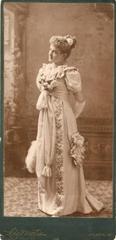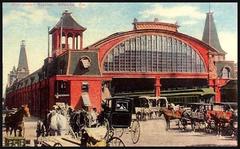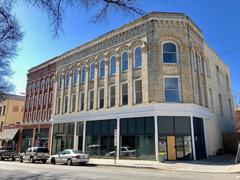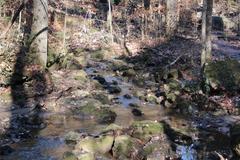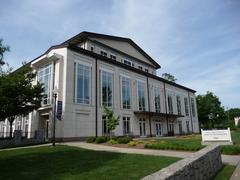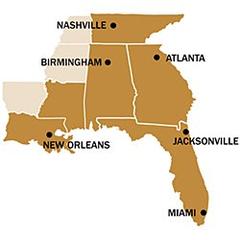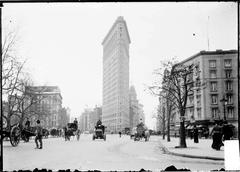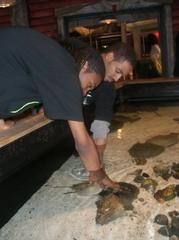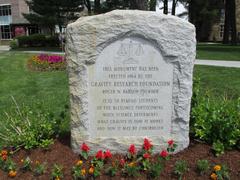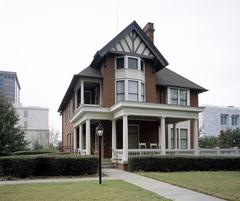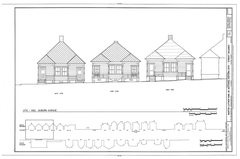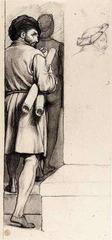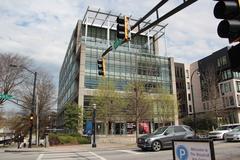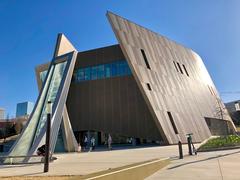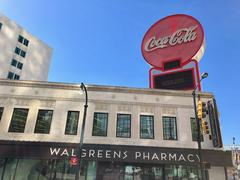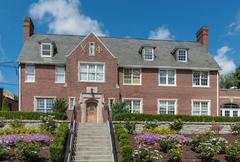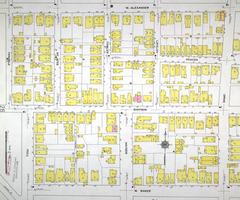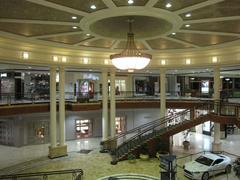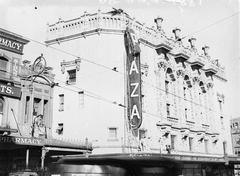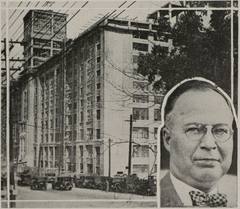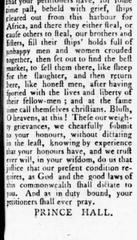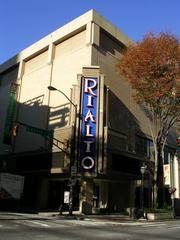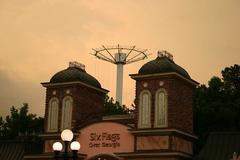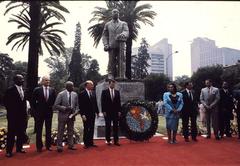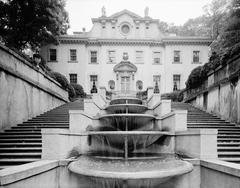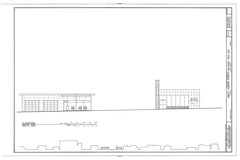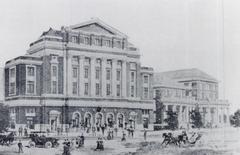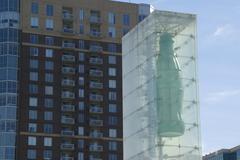Brookwood Hills Atlanta: Visiting Hours, Tickets, and Historical Sites Guide
Date: 14/06/2025
Introduction
Brookwood Hills, located at the crossroads of Buckhead and Midtown Atlanta, is a historic residential enclave celebrated for its early 20th-century architecture, lush tree canopies, and enduring community spirit. Established in 1922 by Benjamin Franklin Burdett and his son Arthur, Brookwood Hills is a model of the City Beautiful movement, an urban planning philosophy that prioritized beauty, green space, and harmonious design (Brookwood Hills History). Today, the neighborhood’s winding streets, mature oaks, and architectural variety make it a living testament to Atlanta’s postbellum renaissance and suburban growth.
Though primarily private and residential, Brookwood Hills invites visitors to appreciate its scenic ambience via self-guided walks or drives along its public streets. Its proximity to major Atlanta attractions—including Piedmont Park, the Atlanta BeltLine, and the Museum of Contemporary Art of Georgia—enhances its appeal for those seeking to explore the city’s historic and cultural offerings (Brookwood Hills Community Club; Atlanta Preservation Center). This comprehensive guide details Brookwood Hills’ history, architectural highlights, visitor etiquette, accessibility, nearby attractions, and travel tips for a respectful and enriching experience.
Table of Contents
- Introduction
- Origins and Early Development
- Architectural Significance
- Community and Social Life
- Visitor Information: Hours, Access, and Etiquette
- Nearby Attractions
- Accessibility & Travel Tips
- Preservation and Modern Identity
- Frequently Asked Questions (FAQs)
- Summary and Recommendations
- References & External Links
Origins and Early Development
Founded in 1922, Brookwood Hills was conceived as one of Atlanta’s first planned residential communities. The Burdett family acquired approximately 100 acres of land, previously marked by Civil War engagements—most notably the 1864 Battle of Peachtree Creek (Brookwood Hills History). Their vision was to create a tranquil yet accessible suburb with curvilinear streets, generous green spaces, and a five-acre central park—features that still define the neighborhood’s character today.
The neighborhood’s layout and landscaping were heavily influenced by the City Beautiful movement, emphasizing not just aesthetic harmony but also community well-being and environmental stewardship (Brookwood Hills Centennial History).
Architectural Significance
Brookwood Hills showcases a variety of architectural styles, including Colonial Revival, Tudor Revival, Craftsman, and Mediterranean, many designed by prominent Atlanta architects. Unlike much of Atlanta, which lost many antebellum buildings during the Civil War and subsequent fires (Atlanta Architecture Overview), Brookwood Hills represents a period of postbellum renewal and architectural innovation.
The neighborhood’s historic integrity has earned it recognition on the National Register of Historic Places and designation as a Conservation District, ensuring preservation of its unique ambiance and building traditions.
Community and Social Life
A strong sense of community defines Brookwood Hills. The Brookwood Hills Community Club (BWHCC) is the neighborhood’s social hub, providing amenities such as a pool, tennis courts, and playgrounds, and hosting events like the Fourth of July parade and Easter egg hunt (Brookwood Hills Community Club). The Brookwood Byword newsletter and active garden and civic clubs sustain a tradition of neighborly engagement.
The community’s centennial in 2022 underscored its legacy of multigenerational stewardship and civic pride.
Visitor Information: Hours, Access, and Etiquette
Hours and Access
Brookwood Hills does not have formal visiting hours or ticketed access: public streets and sidewalks are generally open from dawn to dusk. The community’s facilities—including the Brookwood Hills Community Club—are private and for residents or their guests only.
Etiquette
- Respect privacy: Stay on public sidewalks; do not trespass on private property or enter community amenities without invitation.
- Photography: Personal-use photography from public streets is welcomed. Please avoid intrusive behavior.
- Events: Occasionally, community events—such as garden tours or centennial celebrations—are open to the public; check the official website or local listings for updates.
Nearby Attractions
Brookwood Hills’ central location places it near several of Atlanta’s cultural and historic destinations:
- Piedmont Park
- Atlanta BeltLine
- Museum of Contemporary Art of Georgia
- Atlanta History Center
- Ponce City Market
These venues offer visitor-friendly hours, tours, and events, and are excellent complements to a Brookwood Hills visit.
Accessibility & Travel Tips
- Getting There: Accessible via Peachtree Street, close to Midtown, Buckhead, and Downtown Atlanta.
- Public Transit: MARTA rail and bus services (Arts Center and Lindbergh Center stations nearby).
- Parking: Street parking is limited; observe posted regulations.
- Best Times to Visit: Spring and fall, when the tree canopy is vibrant and the weather mild.
- Mobility: The terrain is gently hilly, with some uneven sidewalks; visitors with mobility needs should plan accordingly.
Preservation and Modern Identity
Brookwood Hills remains a model of historic preservation and community-led stewardship. The neighborhood’s Conservation District status helps safeguard its period architecture and green spaces amid Atlanta’s urban growth. Active resident participation in preservation ensures new developments honor the community’s unique identity.
Frequently Asked Questions (FAQs)
Can I visit Brookwood Hills?
Yes; public streets and sidewalks are open for self-guided walks or drives. Private amenities are reserved for residents and guests.
Are there official tours or public visiting hours?
There are no formal tours or set hours, but occasional garden tours and events may be open to the public. Check local resources for updates.
Is photography allowed?
Photography from public areas is permitted for personal use. Always respect residents’ privacy.
What are the best nearby attractions?
Piedmont Park, the Atlanta BeltLine, Atlanta History Center, and Ponce City Market are all within easy reach.
Is the area accessible for those with mobility challenges?
Some sidewalks and hills may be difficult, but public areas are generally accessible. Plan accordingly.
Summary and Recommendations
Brookwood Hills is a serene, architecturally rich neighborhood that offers a window into Atlanta’s history and community life. While access to private facilities is limited, visitors can stroll its leafy streets, admire historic homes, and enjoy the neighborhood’s tranquil atmosphere—especially during spring and fall. The proximity to Atlanta’s major parks, museums, and cultural institutions makes a visit to Brookwood Hills a meaningful addition to any city itinerary (Brookwood Hills Community Club; Atlanta History Center; Atlanta BeltLine).
Visitor Tips:
- Respect the private residential character of the area.
- Observe parking rules and community guidelines.
- Consider timing your visit to coincide with open community events or garden tours.
- Explore adjacent Atlanta neighborhoods and historical sites for a broader city experience.
For interactive maps, event updates, and self-guided walking tours, download the Audiala app and follow local organizations on social media.
References & External Links
- Brookwood Hills Community Club - About Us
- Brookwood Hills Official Website
- NPUE Atlanta - Brookwood Hills Neighborhoods
- Atlanta Preservation Center
- Atlanta History Center
- Atlanta BeltLine
- NeighborhoodScout Brookwood Hills Profile
- Atlanta Tourism Official Site
- Atlanta Botanical Garden
For image suggestions, include high-resolution photos with alt tags such as “Brookwood Hills historic homes Atlanta” and “Brookwood Hills green park Atlanta.” An interactive map of nearby attractions enhances visitor planning.

